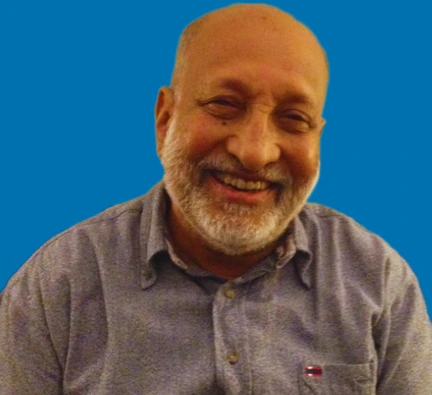Mustafa Malik
October 22, 1996
THE BALTIMORE SUN
October 22, 1996
My friend Tom Neumann complains that American news media are distorting the Benjamin Netanyahu government’s stance on the Israeli-Palestinian peace accords. Tom is the head of the Washington-based Jewish Institute for National Security Affairs. Other supporters of the Israeli prime minister have also assailed American reporters for suggesting that he is trying to sidestep those agreements.
Usually, Muslims have blamed parts of American media for being insensitive toward them. I can vouch for some of it.
During the 1982 Israeli invasion of Lebanon I worked for the wire desk of a very good American newspaper. Frequently, we would receive stories about an Israeli soldier or two getting killed by Lebanese snipers, and we would run them on Page One. More than 12,000 innocent Lebanese were killed during that invasion, but no story was published by us on that tragedy.
Later I wrote a piece calling for peace talks between Israel and the Palestine Liberation Organization and had it published by the paper’s Palestinian op-ed editor. The PLO was then anathema to many Americans. Our newspaper was deluged with letters protesting the publication of the article, and I received a hate phone call. I now knew part of the reason we had not run a news story on the Lebanese plight even though some other papers did.
My Muslim identity attracted interesting inquiries. At another newspaper, a colleague wanted to know how many wives I could have back in Pakistan. At yet another newspaper, a colleague one day saw me cruising the street for a parking space as the newspaper parking lot had filled up. When I arrived in the newsroom, he asked where I had parked my camel.
A heartening change has now been occurring in the U.S. media and public perception of Muslims, Islam and Arabs. A whole bombing episode has passed off in Atlanta without anybody speculating about a Muslim connection. So has, more or less, the blast that blew up TWA Flight 800 in New York. Contrast these with the Oklahoma City and New York Trade Center bombings or the Persian Gulf war. Each of those incidents was followed by unwarranted innuendoes about Muslims, leading to their harassment.
Muslim perspectives
More and more, newspapers and television are giving Muslim perspectives in stories about Muslims or Islam. Some have covered such Islamic events as Ramadan, the month-long, dawn-to-dusk fasting; and the two ld festivals, one marking the end of Ramadan and the other commemorating Abraham’s readiness to sacrifice his son for God.
The trend is noticeable on the social and political planes as well. Muslims are invited to White House social events and mentioned by the president and lawmakers in their public statements about American faiths. Head-covered women are now an accepted feature of the American scene. In Detroit and Dearborn, Mich.; in Trenton and Williamsboro, N.J.; and in other places some schools observe the Ids. Many other schools across the nation allow Muslim students to stay home on Islamic holidays.
Some communities are more hospitable to Muslims than others. After South Jersey’s first snowstorm in 1994, several Muslims went to shovel snow from the sidewalks of their new mosque at Pal Myra. They saw Christian neighbors had done it for them. The same thing happened after several other snowstorms. Some of the South Asian Muslims, nurturing memories of vicious Hindu-Muslim conflicts, were surprised by the broad-mindedness of these Americans. Mohammed Osman Khan, a Pakistani native, was not. His Jewish boss at the state Treasury Department had promoted him over several Jewish and Christian co-workers.
Know one another
Many Americans’ anti-Muslim bias and anti-Americanism among many Muslims stem mainly from their never really getting to know one another. The influx of nearly 4 million Muslims into America during the last four decades and America’s growing contacts with the Muslim world, while generating some culture clashes, are promoting understanding among the three Abrahamic faiths here.
American Muslims have, however, some ways to go to become part of American society. More than two-thirds of them have immigrated from cultures whose values often don’t agree with those of the American mainstream. Many Muslims resist socialization with non-Muslims, prefer keeping women indoors, marry girls young to grooms chosen by the family, not by the bride. Most Americans frown at these practices. But things are changing with the coming of age of the first and second generation Muslims who disdain these practices.
Muslims, on the other hand, resent American support for some repressive Muslim governments and, especially, a high level of American tolerance for Israeli excesses against Palestinians. A resolution of the Israeli-Palestinian imbroglio would not only help restore peace in the Holy Land, but improve interfaith relations in America. If hard-nosed American reporters can help nudge Netanyahu toward the peace track, they would help nudge Tom Neumann and me even closer to each other.

